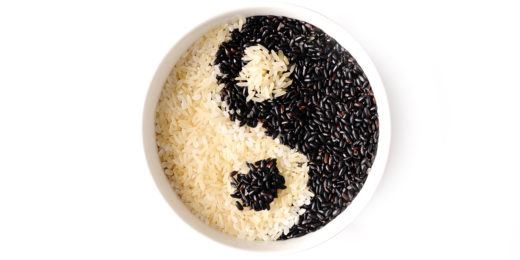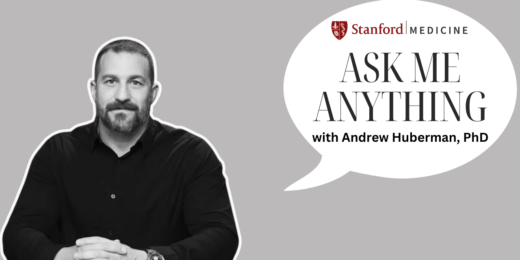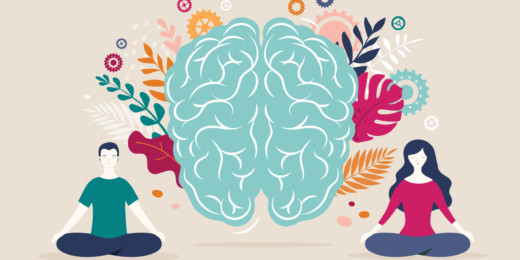A philosopher by nature, Christopher Gardner had a meandering, yet purposeful, path to nutrition science and food sustainability.
Category: Wellness
Ask Me Anything: Neuroscience with Andrew Huberman
Andrew Huberman joins Stanford Medicine in an Ask Me Anything featuring topics such as human behavior and neuroscience.
Addressing mental health struggles among health care workers
Tait Shanafelt discusses physician suicide as a national crisis, and how to support health care workers' mental health.
Demystifying egg freezing in medicine
A Stanford surgical resident shares her story behind why she decided to freeze her eggs in the hopes that she can demystify the process.
Mental health hygiene can improve mood, decrease stress
Creating a routine of mental health hygiene, including daily mindfulness practices, can decrease stress levels and improve mood.
Quick and easy food substitutions for a heart-healthy diet
Stanford dietitian recommends making some simple food substitutions that cut back on fats and carbohydrates to improve heart health.
How COVID-19 has hurt health care workers’ mental health
Stanford clinical psychologist discusses how the mental health of health care workers has been impacted by the pandemic.
Staying active is important — especially for older adults
Randall Stafford discusses the importance and benefits of physical activity, particularly for aging adults.
Stanford-born birth control app among Time’s top 100 innovations
Two Stanford Biodesign researchers designed a birth control app and case that helps women track their weekly doses.
Brain trauma is not the same in women and men
Stanford Medicine researchers are exploring how men and women's brains differ after traumatic head injury.
Addictive potential of social media, explained
Stanford psychiatrist Anna Lembke’s book, Dopamine Nation, explains our brain chemistry's role in modern society's addiction to social media.
Program improves resilience for parents of kids with autism
Learning techniques to build resilience lowers the stress and anxiety of raising a child with autism, Stanford research found.
Finding our Zen helps us act in support of the common good
The more that people do "contemplative practices," such meditation, the longer they abide by shelter-in-place guidelines, new study shows.
Attitude toward mistakes — and lack of self-care — harm physicians’ well-being
A survey shows there's nothing inherent about being a physician that leads to burnout. The problems are long hours and shame about errors.
Cook’s family recipe lifts hospital employees’ spirits during COVID
Serving chilaquiles, a Mexican breakfast, is one way Stanford Health Care food service workers support hospital workers during the pandemic.
Stanford experts talk COVID mental health transitions in 2021
The next phase of the global pandemic will bring new mental health challenges, so Stanford experts offer tips for building resilience.

















